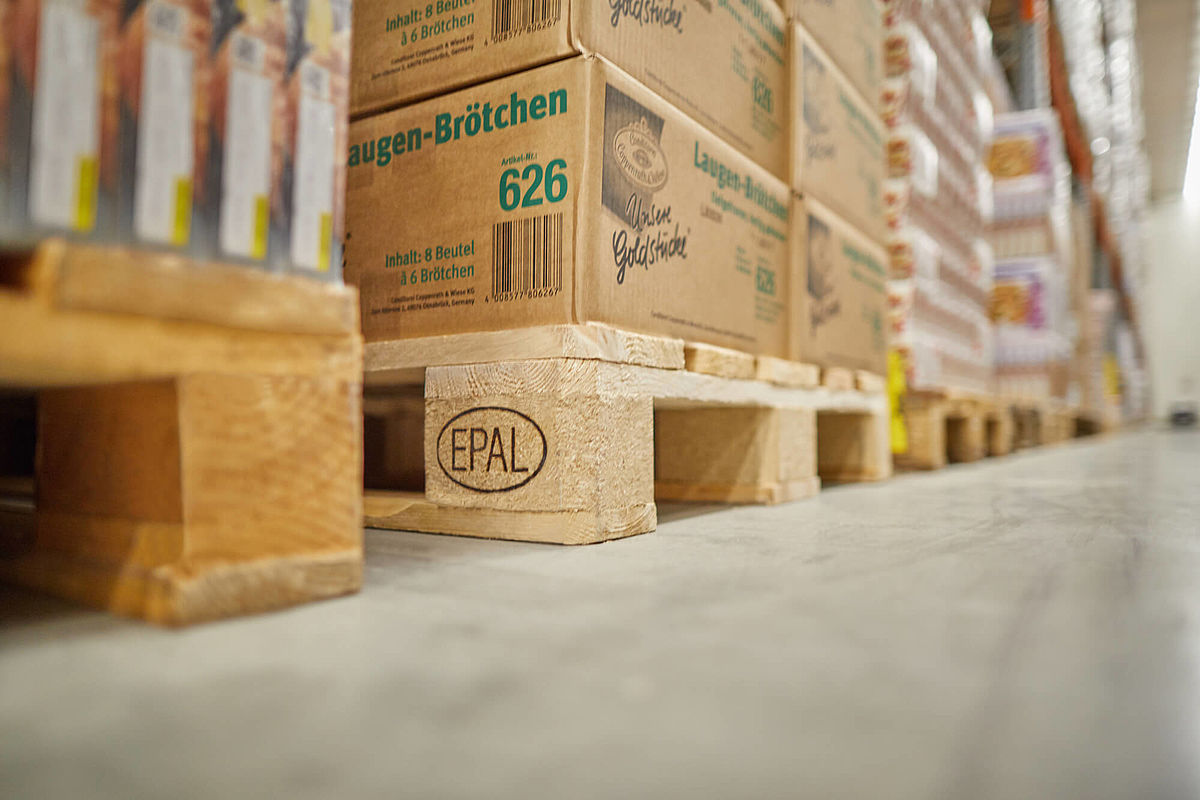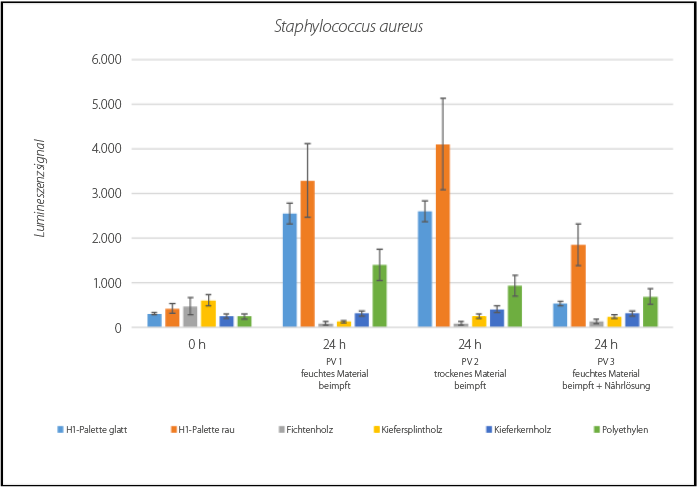Wooden pallets show higher levels of antibacterial activity than plastic
Wooden pallets show higher levels of antibacterial activity than plastic
The widely held opinion that plastic pallets actually in load carrier circulation, inherently have better hygiene properties has now been convincingly proved wrong by a study by the Institute for Wood Technology Dresden.
In the laboratory investigations carried out between February 2018 and December 2019, the microbial properties of standard EPAL Euro pallets were compared to H1 plastic pallets. Pallet types of all available quality classes were tested strictly according to certified inspection procedures. The test pieces were ordered from a dealer from the normal load carrier sector, so they had all already been used once or more. They were not cleaned before testing. Tests were carried out with the test germs escherichia coli and staphylococcus aureus.
The tests came to the following conclusion:
“In principle, bacteria on wood do not survive as well as on plastic. It can therefore be assumed that in the critical foodstuffs sector, wooden pallets can be used. However, this does still require, just as for plastic pallets, strict compliance with hygiene regulations during the production, transport and storage of foodstuffs and continuous monitoring of the pallet quality as well as regular cleaning.”
The claim often repeated by plastic pallet producers that wooden pallets are more vulnerable to microbial infestation due to their rough surface condition, could not be verified. In contrast, it was verified that the rough parts which often develop through use on just used plastic pallets, are an ideal breeding ground for bacteria. Whilst the naturally hygienic wood properties measurably counteract the proliferation of micro-organisms.
Under the above-mentioned conditions, wooden pallets achieved a more than 13 times higher antibacterial activity than the H1 plastic pallet. For the exact results please refer to the hygiene study.
Finally, it was also proved that with the correct cleaning, documented bacteria and fungi on wooden pallets can be effectively removed, not only from plastic pallets. Thus, dispelling another important claim made by plastic pallet producers against wooden pallets.
In summary, it can be established that affordable EPAL Euro pallets made of wood can be used without hesitation to transport and store hygiene-critical foodstuffs.
All information on the study can be found at: www.hygienestudie.gpal.de
EPAL Deutschland commissioned the study.
Illustrations: Germ activities test germs
Source: EPAL Deutschland



